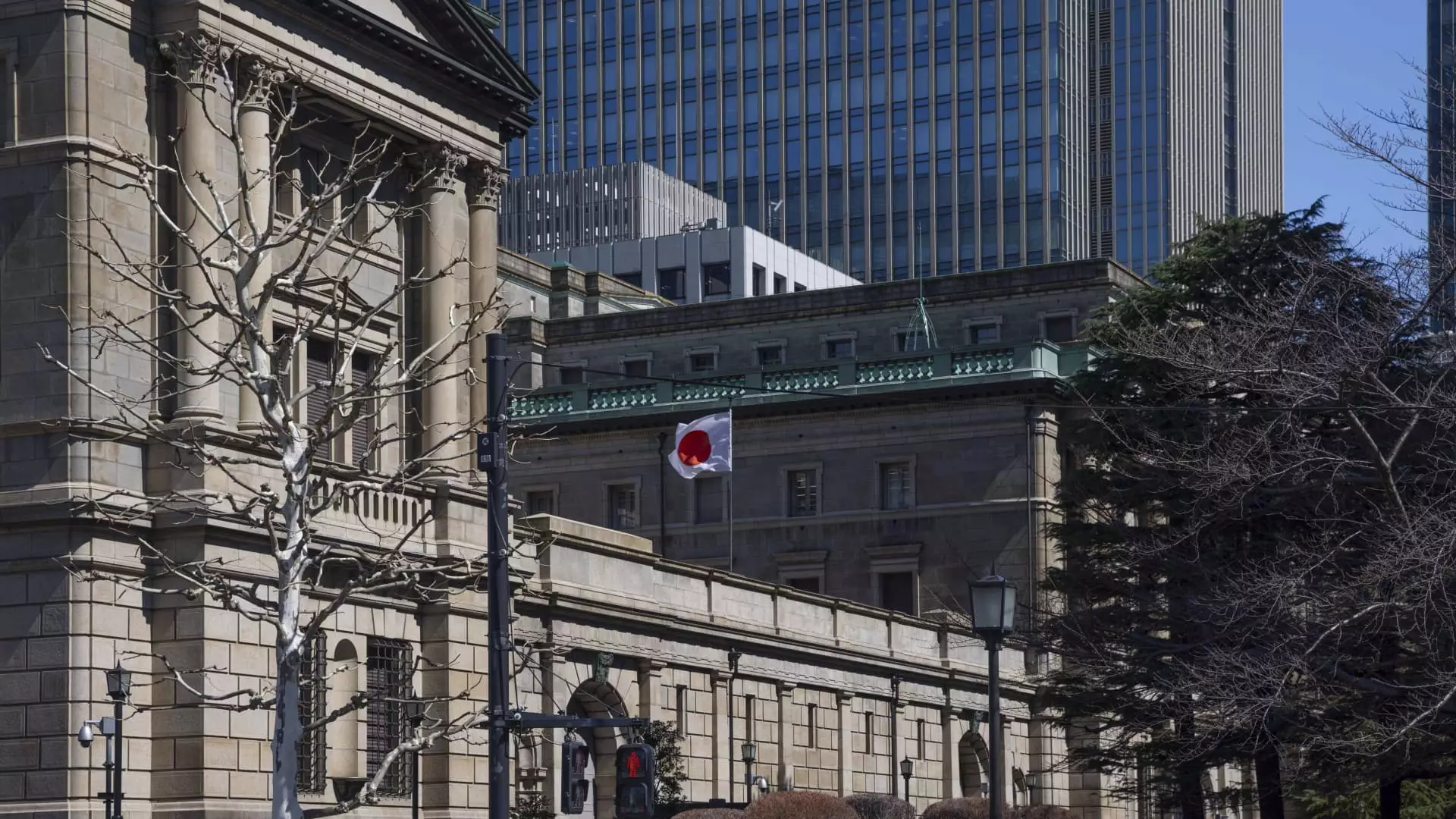In a world where currency strength significantly influences a nation’s economy, Japan finds itself wrestling with a vulnerable yen that heightens living costs for its citizens. The ruling Liberal Democratic Party’s policy chief, Itsunori Onodera, publicly acknowledged the detrimental effects of a depreciating yen, emphasizing that actionable steps must be taken to bolster the national currency. The repercussions of the yen’s weakness extend far beyond mere economic statistics, directly impacting household budgets and the cost of daily essentials. It is glaringly apparent that the people of Japan bear the burden of this economic precariousness, and the urgency to implement policy changes has never been clearer.
The recent statements from Onodera reflect a deepening concern among Japanese policymakers, indicating that the weak yen is not just a peripheral issue but rather a central challenge threatening Japan’s economic stability. The rising prices that accompany a weaker yen force families to stretch their finances even thinner, pushing the narrative that a robust response from the government is essential. Why, then, has Japan’s leadership seemed so slow to act—beyond the usual rhetoric about strengthening competitiveness?
A Delicate Balancing Act
The intricate relationship between Japan’s currency policy and its dependency on exports creates a paradox. Traditionally, Japanese leaders have worked tirelessly to maintain a balance—encouraging a competitive edge for exports while avoiding a currency that becomes too dear. Yet, this balancing act appears to have slipped through the cracks as the U.S. Federal Reserve tightens its monetary policy, exacerbating the yen’s decline. The Bank of Japan (BOJ) has languished in its decision-making regarding interest rates, which are still set at ultra-low levels, blatantly ignoring the urgent necessity for change.
This impasse raises questions about Japan’s commitment to creating a resilient economic environment for its citizens. Critics argue that policymakers should embrace a more proactive stance rather than relying on external factors to dictate domestic economic stability. If inflation continues to spiral and trust in the yen disintegrates, the cultural tendency toward complacency will need revising. Can Japan truly afford to remain passive while its economic foundation wavers?
Retaliation vs. Diplomacy: A Call for Rationality
The notion of leveraging Japan’s considerable holdings in U.S. Treasury bonds as a tool of negotiation against tariffs imposed by the U.S. confronts a complex web of implications. Onodera’s firm rejection of utilizing such a strategy underscores a pivotal reality: Japan’s status as a U.S. ally places it at a crossroads. The potential fallout from taking retaliatory actions could lead to significant repercussions not just within Japan’s borders but also on the global economic stage.
In light of these dynamics, Japan must straddle the delicate line between advocating for its own interests without endangering its international relationships. By fostering an environment of cooperation and understanding with its American counterparts, Japan could emerge stronger, instead of resorting to tactics that might damage long-standing alliances. The trade talks set for this week provide a crucial platform for diplomacy to flourish, but only if both parties step away from the intimidation of retaliatory posturing.
The Path Ahead: A Call for Economic Revolution
Japan stands at a pivotal moment in history. The intersection of a declining yen, rising prices, and global economic uncertainty provides a fertile ground for revolutionary economic policies. Policymakers cannot afford to lag behind in the face of daunting challenges that cripple both growth and the daily lives of ordinary citizens. The answer does not lie solely in the restoration of an appreciation for the yen but in cultivating the strength of Japanese industries, investing in innovation, and adapting to the ever-changing dynamics of world markets.
The time has come for Japan to rekindle its economic might, fostering an environment where businesses can thrive without the weight of currency vulnerability. Achieving this vision requires a clear acknowledgment of the dire circumstances and a courageous departure from outdated practices. As Japan enters a critical dialogue with the U.S., may the leaders prioritize rationality and foresight over the whims of tradition, forging a new path that reflects economic resilience and compassion for the people they serve.

